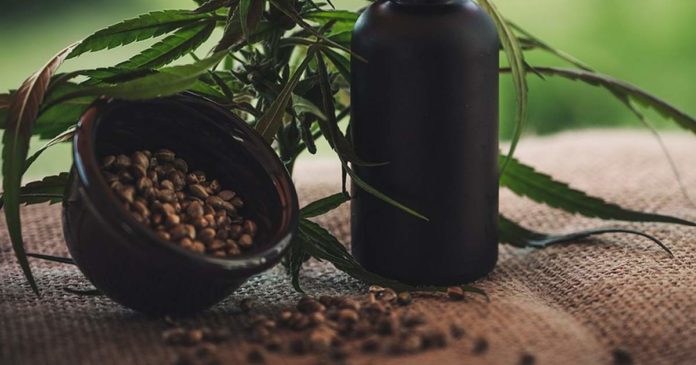An agency of the US Department of Agriculture is teaming up with an Illinois based firm to potentially expand the market for products made from hemp seed oil.
The cooperative research and development agreement between Agricultural Research Service (ARS) scientists and the Midwest Bioprocessing Center focuses on a patented process already developed by the pair called bio-catalysis. This involves using enzymes and heat rather than chemicals to catalyze reactions binding natural antioxidants such as ferulic acid to lipids in plant-based oils.
Already used to create a class of licensed and commercialized feruloyl soy glyceride (FSG) compounds from soybean oil, the same sort of process will be used in an attempt to make ferulic-acid-based ingredients from bio-catalyzed hemp seed oil.
“Hemp seed oil today is popularly used in cannabidiol-containing products for perceived health benefits,” says the USDA*. “However, like soy or corn oil, hemp oil also contains a variety of nutrients, fatty acids (including omega-3 fatty acids) and bioactive compounds that can be transformed into specialty chemicals offering useful new properties.”
This bio-catalysed hemp seed oil will be used to produce “cosmeceuticals” with specific attributes such as moisture retention or UV protection.
Beyond cosmeceuticals and personal care products, ARS National Center for Agricultural Utilization Research (NCAUR) boffins are also delving into better ways of turning hemp into fuels, lubricants and adhesives, functional food ingredients and fiber products.
As well as hemp seed oil being highly nutritious, extracts produced from hemp seed are increasingly appearing in cosmetics, skin and other personal care products – everything from soaps to hair sprays.
* Just a note on this – hemp seed oil contains very little if any cannabidiol – learn more about the difference between hemp oil and hemp seed oil. It’s important to understand the difference, examine claims and to read the labels of any hemp based products carefully. This isn’t just to ensure you’re getting what you’re paying for, but also that you remain within whatever laws apply in your jurisdiction; particularly if you’re buying online from a source outside your region.


